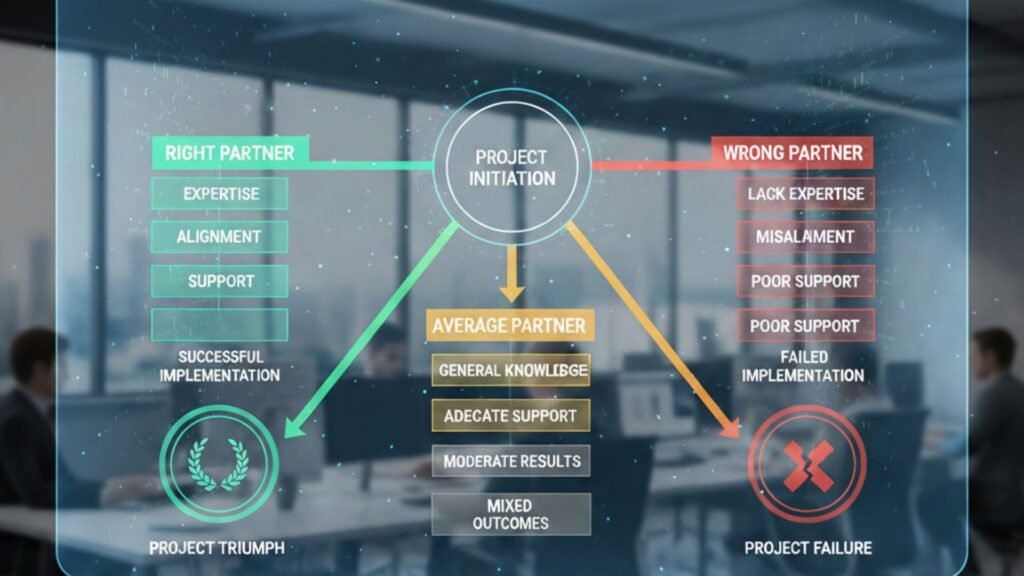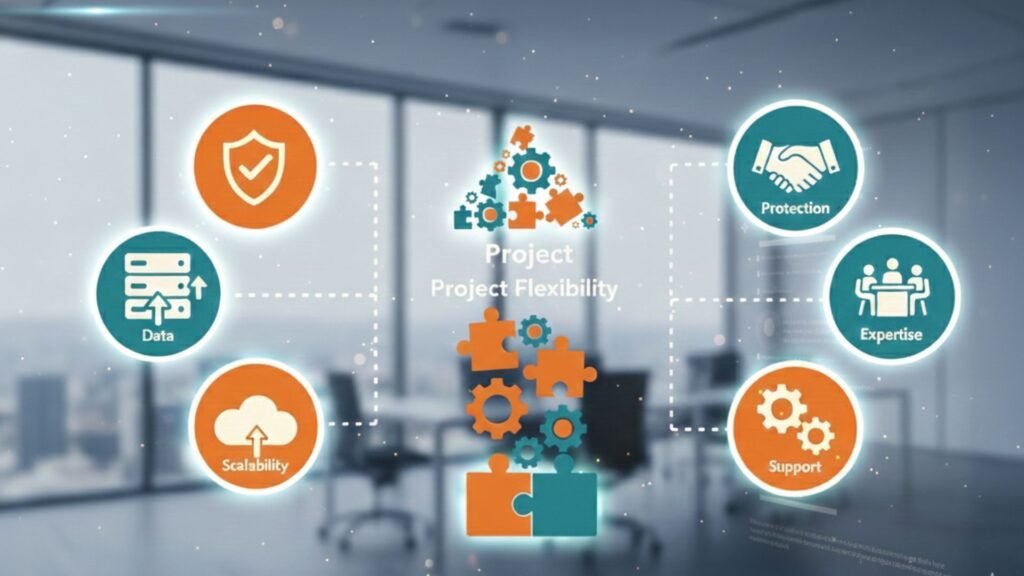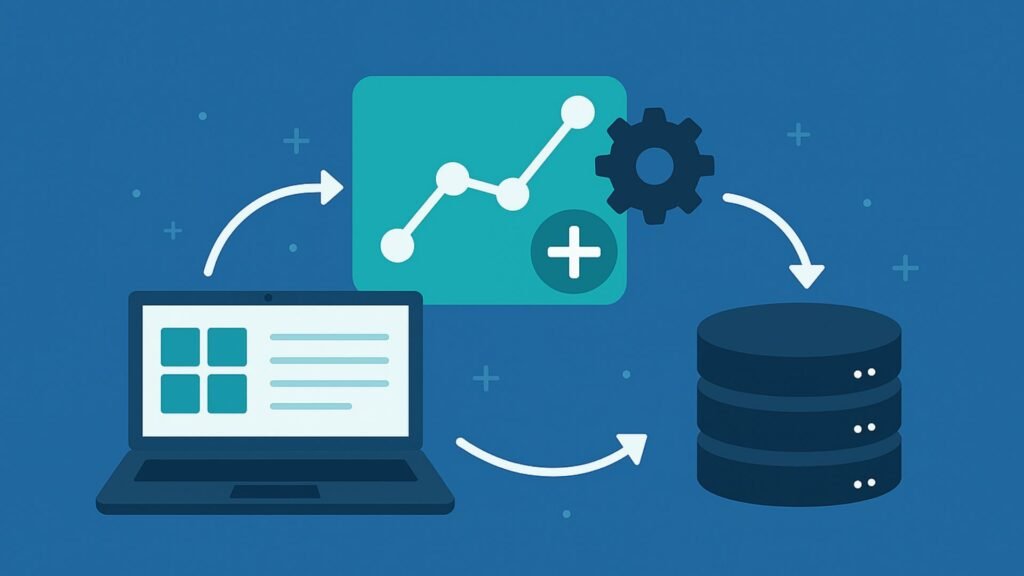From Reactive to Predictive: The Future of ERP Managed Services
In today’s hyper-competitive digital economy, businesses can no longer afford to operate in a reactive mode. Waiting for systems to fail before fixing them is not just outdated—it’s expensive. Enterprise Resource Planning (ERP) has evolved far beyond back-office automation. With intelligent tools like Microsoft Dynamics 365, ERP managed services are shifting from reactive support to predictive intelligence. Organizations across industries are now embracing predictive ERP managed services to minimize downtime, optimize performance, and unlock real-time business insights. Especially for businesses looking for a microsoft dynamics 365 partner in texas usa, the shift to predictive services is becoming a strategic necessity rather than a technical upgrade. Let’s explore how ERP managed services are evolving—and why forward-thinking businesses are making the move now. The Traditional Reactive ERP Model: A Costly Approach For years, ERP support operated on a “break-fix” model. Something failed. The IT team responded. Business operations suffered in the meantime. This reactive approach often leads to: While reactive ERP support may appear cost-effective initially, hidden costs accumulate quickly. Missed sales, delayed supply chains, and frustrated employees can significantly impact profitability. What Does Predictive ERP Managed Services Mean? Predictive ERP managed services leverage AI, automation, real-time monitoring, and analytics to detect potential issues before they impact operations. With solutions like Microsoft Dynamics 365 Business Central, organizations can: Instead of reacting to problems, businesses anticipate and prevent them. Why Predictive ERP Is the Future 1. Reduced Downtime Downtime is one of the biggest risks to modern enterprises. Predictive monitoring tools continuously track system performance and alert teams before failures occur. 2. Enhanced Security Cyber threats are growing in sophistication. Predictive ERP systems analyze unusual activity patterns and flag security risks before breaches happen. 3. Smarter Decision-Making With built-in analytics and AI-driven insights, businesses gain access to actionable data that supports faster and more accurate decision-making. 4. Improved ROI Predictive services reduce emergency interventions and costly disruptions. Over time, this significantly improves ERP ROI. The Role of a Microsoft Dynamics 365 Partner in Texas USA Choosing the right microsoft dynamics 365 partner in texas usa is critical for transitioning from reactive to predictive ERP services. A reliable partner provides: Local expertise in Texas ensures compliance with regional regulations, faster response times, and personalized support tailored to your business environment. Microsoft Dynamics 365 Business Central in Texas USA: Driving Intelligent Operations Businesses implementing microsoft dynamics 365 business central in texas usa are gaining access to cloud-powered intelligence that supports predictive management. Key capabilities include: This cloud-based ERP solution integrates seamlessly with other Microsoft tools, enabling data-driven operations across departments. Microsoft Dynamics 365 Support Services in Texas USA Ongoing support is where predictive ERP truly shines. With comprehensive Microsoft Dynamics 365 Support Services in texas usa, businesses benefit from: Instead of waiting for system failures, support teams actively monitor and optimize your ERP environment. MS Dynamics 365 Implementation Services in Texas USA Successful ERP transformation begins with a strategic implementation approach. Professional MS Dynamics 365 Implementation services in texas usa ensure: A predictive mindset starts at implementation. When systems are architected for scalability and automation from day one, long-term performance improves dramatically. D365 Migration Services in Texas USA: Moving to the Cloud Legacy systems limit predictive capabilities. Modern businesses are investing in D365 migration services in texas usa to move from on-premise or outdated ERP systems to cloud-based platforms. Cloud migration enables: Migration is not just a technical change—it’s a strategic shift toward future-ready operations. Microsoft Dynamics Consulting Services in Texas USA Transitioning to predictive ERP requires expertise beyond technical support. Businesses benefit from professional microsoft dynamics consulting services in texas usa to: Consultants help organizations unlock the full potential of predictive capabilities within Dynamics 365. Key Technologies Powering Predictive ERP Predictive ERP managed services rely on advanced technologies such as: Artificial Intelligence (AI) : AI algorithms analyze historical data to forecast future outcomes, detect anomalies, and optimize processes. Machine Learning : Systems continuously improve by learning from operational data patterns. Cloud Computing : Cloud platforms provide scalability, flexibility, and continuous updates. Advanced Analytics: Real-time dashboards transform raw data into actionable insights. Industry Benefits of Predictive ERP Managed Services Manufacturing : Predictive maintenance reduces equipment downtime and optimizes production schedules. Retail: Demand forecasting improves inventory planning and customer satisfaction. Healthcare : Real-time compliance monitoring enhances patient data security. Financial Services : Risk management becomes proactive rather than reactive. Measuring Success: KPIs for Predictive ERP Organizations transitioning to predictive ERP should monitor: Improved metrics confirm the effectiveness of predictive managed services. Challenges in Moving from Reactive to Predictive Despite its advantages, transformation can present challenges: Partnering with an experienced Dynamics 365 provider helps overcome these barriers efficiently. The Financial Impact of Predictive ERP Reactive ERP support often results in hidden losses. Predictive ERP, however, creates measurable financial benefits: The long-term savings typically outweigh the initial investment in predictive services. Building a Predictive ERP Strategy To successfully transition: Working with a trusted partner in Texas ensures structured and strategic transformation. Why Businesses in Texas Are Accelerating ERP Modernization Texas is home to rapidly growing industries, including technology, manufacturing, healthcare, and retail. These sectors demand scalable and intelligent ERP systems. Businesses searching for a microsoft dynamics 365 partner in texas usa are prioritizing predictive managed services to remain competitive and future-ready. Conclusion: The Future Is Predictive, Not Reactive ERP managed services are no longer just about fixing problems—they’re about preventing them. The evolution from reactive to predictive represents a fundamental shift in how businesses operate. With solutions like Microsoft Dynamics 365 and expert Microsoft Dynamics 365 Support Services in texas usa, companies can: Organizations that embrace predictive ERP today will lead their industries tomorrow. Frequently Asked Questions (FAQs) Q 1. What is predictive ERP managed services? Ans: Predictive ERP managed services use AI, monitoring tools, and analytics to prevent system issues before they impact operations. Q 2. Why should I choose a microsoft dynamics 365 partner in texas usa? Ans: A local partner offers faster response times, regional expertise, compliance understanding, and personalized support tailored to your
From Reactive to Predictive: The Future of ERP Managed Services Read More »












